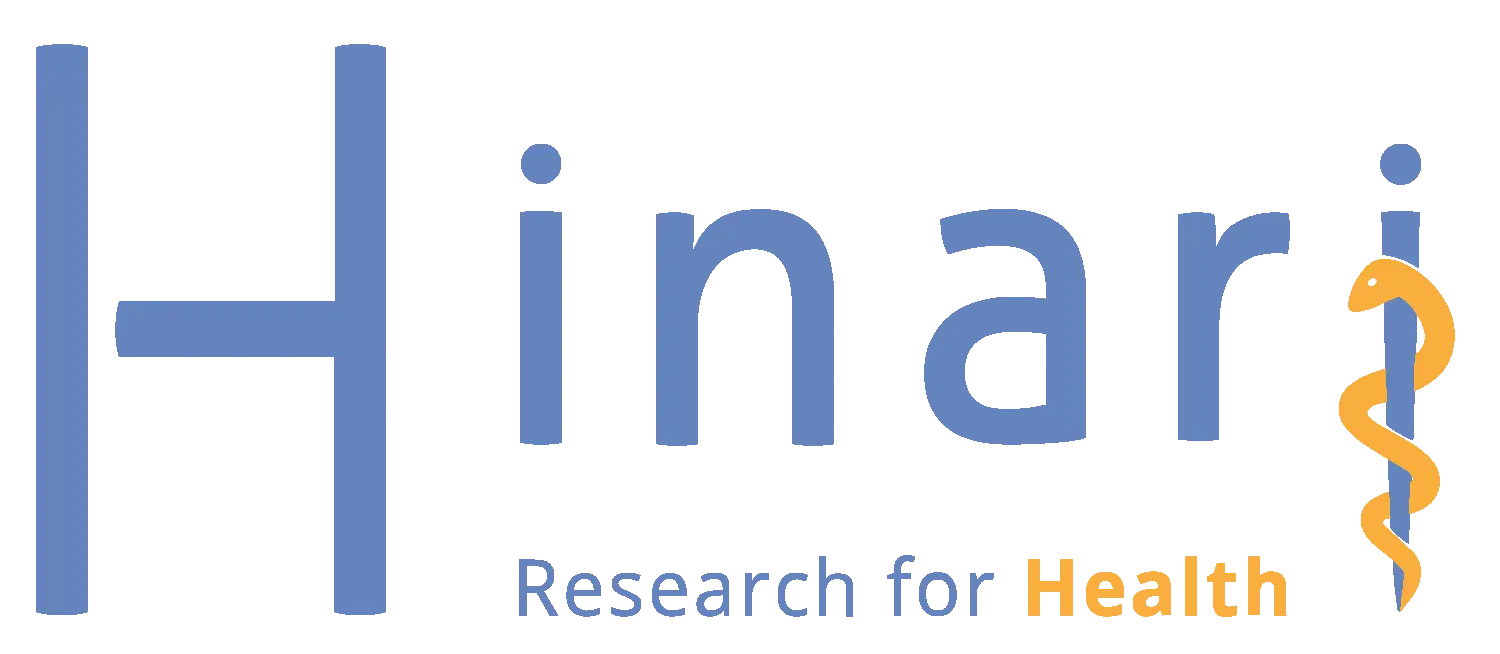Abstract
Objective:
Nurses in the intensive care unit (ICU) experienced high prevalence of compassion fatigue and moral distress that can reduce job satisfaction and impact the quality of care due to specific conditions of patients, thus identifying the factors affecting the compassion fatigue and moral distress is very important. This study aimed to investigate the impact of airway management training on the quality of care delivery and moral distress and compassion fatigue in nurses.
Materials and Methods:
This study was conducted on 50 nurses working in the ICU. Data collection tools included Moral Distress Scale and Multidimensional Fatigue Inventory, along with an airway care checklist prepared according to nursing standards. Before the intervention, participants completed the questionnaires and their function of airway care was investigated through the checklist. Nurses were trained face to face. After training, assessors evaluated the nurses by observing the quality of airway care through the standard checklist. Then, moral distress and fatigue questionnaires were filled again, and results before and after training were analysed.
Results:
The rate of moral distress and fatigue among nurses has significantly reduced before and after training (p<0.001). In addition, the quality of airway management increased from 70% to 86% (p<0.001).
Conclusion:
Airway management training can decrease the nurses’ moral distress and compassion fatigue and improve the quality of airway care. The ability of nurses working in the ICU including knowledge and practice increased leading to improved quality of care and reduced moral distress and compassion fatigue. Therefore, periodic training workshops in airway management can be very effective.
Keywords: Airway management, compassion fatigue, education in practice, intensive care units, moral distress, respiratory care
1. Introduction
Nurses play an important role in managing intensive care units (ICUs) (1) and taking care of patient’s receiving ventilation is regarded as one of their responsibilities. In addition, artificial airway is an invasive procedure. Airway management will increases patient’s chance of survival although it can be distressful and difficult for caregivers (2). The failure for performing necessary cares by artificial airways among the patients may lead to a lot of damages (3,4). However, considering the accurate care and its standards result in reducing hospitalization time, costs, risks, complications, and distress along with improving the quality of patient and his family’s lives is very important (5,6).
Many studies reported that nurses working in ICUs face numerous psychological and physical distresses, which can influence the quality of their care (7). ICU staff can suffer moral distress and compassion fatigue due to high mortality rate, painful conditions of patients, and technology and advanced tools (8-10). It has been estimated that 80% of ICU nurses are experiencing moral distress (11). Shorideh indicated a high level of moral distress in ICU nurses (12) which can lead to adverse consequences such as loss of belonging, lack of confidence, hopeless, anger, as well as the feeling of inability to take care of patients (13,14).
In general, moral distress in nurses occurs when a specific moral action is needed or in a specific situation, where he should choose a treatment guideline based on his personal moral bias. In addition, internal or external limits which interference the performance of caring programs cause moral distress (15). Moral distress prevalence is very high in ICU because of crisis situations they face which lead to decision making and therapeutic actions (10). For example one of the most cause of nurses experienced distress as a consequence of inadequate care provided by other nurses and physicians the other cause was pain management and its relation to extubation (16).
In another study, 81% of ICU nurses described themselves powerless and ineffective. In addition, they may fail to make decisions for their patients because of moral conflicts (10). Since moral distress is often associated with compassion fatigue, it will cause emotional exhaustion, job exhaustion, position loss, or even profession leaving if the nurses fail to overcome this feeling (17,18).
According to the culture and specific value in Iran, organizational constraints, unnecessary measures, wrong treatment, medical and medicinal errors, as well as responsibility, competence and incorrect resources can cause moral distress in ICU (12). Since nurses are the greatest group in health care team, their training is considered as a priority. Enough knowledge and skill in nursing field result in developing the quality of patient care and feeling self-satisfying (19,20). As a result, the present study aimed to evaluate the impact of training the airway management on the rate of moral distress and compassion fatigue of nurses in ICUs in a medical and educational center.
2. Materials and Methods
2.1. Design
This study was approved by the Research Council and the Ethics Committee of our University of Medical Sciences (ethics committee reference number: IR.ARAKMU.REC.1395.417) and received a license from the National Center for Clinical Trials Control at IRCT2017062513110N3. Then, the data were collected after the permission of the hospital authorities, the satisfaction of the nurses, and an explanation of the nature and objectives of the research. The questionnaires were completed anonymously and the subjects were allowed to leave during the study. This semi-experimental study was conducted from February to July 2018.
2.2. Subjects and Recruitment
In this study, due to the limited statistical population, the sampling method was census. All nurses working in ICUs of an educational hospital in Arak city, Iran, were invited to participate in the study. Finally, the number of samples was 50 nurses who met the inclusion criteria and agreed to participate in the study. The inclusion criteria were having Bachelor of Science in Nursing or higher degree, working in ICU at least for a year, and inclining to participate in the study.
2.3. Training Course
The intervention type was face-to-face training about standard care of artificial airway, which took a 30-60-minute session. The training covered a description of standard controlling and suctioning the airway, oropharynx, tracheostomy, and tracheal tube, along with an educating pamphlet of verbal summary about the subject. The questionnaires and related checklist were completed before and after the intervention.
2.4. Data Collection
The data were collected by using demographic data questionnaire, Corley Moral Distress scale, and Multidimensional Fatigue inventory.
2.4.1. Corley Moral Distress Scale
Moral distress questionnaire was used to measure the frequency and intensity of moral distress among the subjects in 24 questions based on the five-point Likert scale. Moral distress in this questionnaire describes the times facing distressful factors which is scored 0 for “I’ve never confronted” to 4 for “I’ve been much confronted”. Further, the intensity of moral distress defines the rate of tension one felt while meeting distressful situations and varies from “does not make me distressed” (score 0) to “makes me distressed a lot” (score 4). The scores of each dimension starts from zero to 96 and higher score indicates more frequency or intensity of moral distress. This questionnaire has been used in several studies in Iran in 2012 by Joolaee by considering the specific conditions of the system of providing services in Iran. Its validity was determined by the content method and its reliability was confirmed by the internal consistency method (a=0.86) (21).
In the current study, the internal consistency of the questionnaire was completed by 10 samples was measured using SPSS software as well as the Cronbach’s alpha coefficient, and the reliability coefficient was obtained to be 0.853
2.4.2. Multidimensional Fatigue Inventory
Fatigue inventory included 20 questions and examined 5 different dimensions including general fatigue, physical exhaustion, mental fatigue, decreased activity and motivation. Based on the Likert scale, it was ranged from “Yes, it is completely correct” (score 1) to “No, it is totally wrong” (score 5). Altogether, scores between 21 and 47 are mild, 74-48 moderate and 100-75 severe fatigue. Validity and reliability of this questionnaire were investigated by various studies such as Najafi (22,23).
2.4.3. Operation Checklist
The checklist of nurses’ performance in quality of airway care was obtained from reliable resources, American Nurses Association guidelines and nursing techniques and has been approved by nursing professors of the university. Intra-class correlations method was used to determine the reliability. To this aim, two observers evaluated the performance of 10 nurses according to the checklist simultaneously. Then, the correlation coefficient was calculated 95.8%. The checklist consists of 41 items about the standards of artificial airway care based on a three-point Likert scale including systematic actions score (1), non-systematic actions (0.5), and non-taken actions (0). The range of the scores was between 0-41 and higher scores represented higher operation based on percentage. The checklist completed by direct observation of nurses’ operation in 3 working shifts. The individual operating score was gained through observation in three times.
2.5. Statistical Analysis
According to the objectives of the study, descriptive statistics (frequency, frequency percentage, mean and standard deviation) and analytical statistics (paired sample t-test, Kolmogorov-Smirnov test, Pearson correlation test) were used to analyze the collected data based on the significance level of 5% and confidence level of 80% by using SPSS software version 20.
3. Results
In this study, 50 nurses working in ICUs with average age of 33.14±5/54 were investigated. Among the subjects, 48 (96%) were women and 2 men. In addition, 17 people (34%) had one-year experience in ICUs (Table 1).
As examining the nurses’ quality of airway care before and after the intervention program, 70% of the subjects were able to provide an appropriate care before the training while it increased to 86% after the training.
After intervention intensity and frequency of moral distress, fatigue decreased, as well as the quality of airway care increased after the training. Further, the result of paired sample t-test indicated a significant difference between the scores before and after training (p<0.05).
The result of Kolmogorov-Smirnov test indicated the normal distribution of the data. Pearson correlation test was used for examining the correlation coefficient between intensity and frequency of moral distress and fatigue. As shown in Table 2, a direct correlation was observed between the rate of fatigue and frequency of moral distress (r= 0.661, p<0.050), the intensity of moral distress and rate of fatigue (r=0.666, p<0.05), the quality of airway care and intensity of moral distress (r=-0.343, p<0.05), and the quality of airway care and frequency of moral distress (r=-0.323, p<0.001), as well as the quality of airway care and rate of fatigue (r=-0.381, p<0.05) (Table 2).
4. Discussion
The present study aimed to investigate the relationship between the airway care quality and the moral distress and compassion fatigue in nurses working in ICU. The result indicated that training the airway management and enhancing the quality of care in intensive care patients could reduce the moral distress and compassion fatigue among the practitioners working in these units. The results in line with McAndrew’s study, which investigated the moral distress in the nurses who were helpless in carrying out some nursing care (24). In another study, it was claimed that training and empowering nurses, working in the ICUs has a direct relationship with reducing their moral distress (25). In addition, the moral distress decreases when professional competence increases (26). Further, Saechao revealed that training the nurses, along with participating in webinar can reduce their moral distress and fatigue (27).
In addition to enhancing self-efficacy, airway management training will improve safety in taking care of patients (28,29). In a qualitative study, the concern about the extent and quality of care of patients, as well as lack of proper communication between personnel and lack of autonomy in the care of patients was cited as the factors causing moral distress in the ICU (30). By considering the result of this study, more ability to manage the airway reduces the moral distress.
Further, the results of the present study indicated significant relationship between moral distress and fatigue, which is consistent with the Mohammadi at al.'s (31) study. Furthermore, some studies indicated that nurses’ fatigue can be reduced by their training (32,33).
In addition, a significant relationship was observed between the clinical experience and the quality of airway care in the present study, which is in line with Whyte et al.'s (34) study, which indicated that experienced nurses have better knowledge in the care of patients. Further, Cason et al. (35) reported that work experience in the ICU could be effective in the optimal performance of the personnel, which is consistent with the results of the present study this means that further training of nurses will increase their mastery of airway management. However, compared to the study conducted by physicians, it was revealed that physicians with more experience offer less care quality (36). This contradicting result may be related to the differences in disciplines.
The present study found that more training and knowledge of nurses in intensive care leads to less moral distress and fatigue, which is congruent with the result of another study which proved that the clinical experience tends to improve nurses’ performance in acute situations (37). A study shows that experienced nurses in pediatric oncology unit have better coping responses than rookie nurses (38). So consider to the result of present study it may be possible to offset the nurses’ inexperience by increasing their education.
5. Conclusion
Based on the results, training the management of airway to nurses working in ICUs can reduce moral distress and fatigue and improve the quality of their care.
Ethics
Authorship Contributions
References
- Zahra MS, Marzieh M, Foroozan AS, Yadollah M. The level of observing standard tracheostomy care and some barriers from perspective of nurses. Medical-Surgical Nursing Journal 2015;4:39-46.
- Ringsted C, Schroeder TV, Henriksen J, Ramsing B, Lyngdorf P, Jønsson V, et al. Medical students’ experience in practical skills is far from stakeholders’ expectations. Med Teach 2001;23:412-6.
- Ban KO. The effectiveness of an evidence-based nursing care program to reduce ventilator-associated pneumonia in a Korean ICU. Intensive Crit Care Nurs 2011;27:226-32.
- Chao YF, Chen YY, Wang KW, Lee RP, Tsai H. Removal of oral secretion prior to position change can reduce the incidence of ventilator-associated pneumonia for adult ICU patients: a clinical controlled trial study. J Clin Nurs 2009;18:22-8.
- Bello G, Di Muzio F, Antonelli M. Quality of life and complications after percutaneous tracheostomy. Percutaneous Tracheostomy in Critically Ill Patient: Springer; 2016. p. 131-47.
- Vianello A, Arcaro G, Palmieri A, Ermani M, Braccioni F, Gallan F, et al. Survival and quality of life after tracheostomy for acute respiratory failure in patients with amyotrophic lateral sclerosis. J Crit Care 2011;26:329.e7-14.
- Richmond AL, Jarog DL, Hanson VM. Unplanned extubation in adult critical care. Quality improvement and education payoff. Crit Care Nurse 2004;24:32-7.
- Mealer M, Moss M. Moral distress in ICU nurses. Intensive Care Med 2016;42:1615-7.
- Jones G, Hocine M, Salomon J, Dab W, Temime L. Demographic and occupational predictors of stress and fatigue in French intensive-care registered nurses and nurses’ aides: a cross-sectional study. Int J Nurs Stud 2015;52:250-9.
- Elpern EH, Covert B, Kleinpell R. Moral distress of staff nurses in a medical intensive care unit. Am J Crit Care 2005;14:523-30.
- Corley MC. Nurse moral distress: a proposed theory and research agenda. Nurs Ethics 2002;9:636-50.
- Atashzadeh Shorideh F, Ashktorab T, Yaghmaei F. Iranian intensive care unit nurses’ moral distress: a content analysis. Nurs Ethics 2012;19:464-78.
- Beikmoradi A, Rabiee S, Khatiban M, Cheraghi MA. Nurses distress in intensive care unit: a survey in teaching hospitals. Iranian Journal of Medical Ethics and History of Medicine 2012;5:58-69.
- Huffman DM, Rittenmeyer L. How professional nurses working in hospital environments experience moral distress: a systematic review. Crit Care Nurs Clin North Am 2012;24:91-100.
- Rushton CH, Caldwell M, Kurtz M. CE: Moral Distress: A Catalyst in Building Moral Resilience. Am J Nurs 2016;116:40-9.
- Henrich NJ, Dodek PM, Alden L, Keenan SP, Reynolds S, Rodney P. Causes of moral distress in the intensive care unit: A qualitative study. J Crit Care 2016;35:57-62.
- Neumann JL, Mau LW, Virani S, Denzen EM, Boyle DA, Boyle NJ, et al. Burnout, Moral Distress, Work-Life Balance, and Career Satisfaction among Hematopoietic Cell Transplantation Professionals. Biol Blood Marrow Transplant 2018;24:849-60.
- Oh Y, Gastmans C. Moral distress experienced by nurses: a quantitative literature review. Nurs Ethics 2015;22:15-31.
- Baker PA, Feinleib J, O’Sullivan E. Is it time for airway management education to be mandatory? : Oxford University Press; 2016.
- Han MJ, Lee JR, Shin YJ, Son JS, Choi EJ, Oh YH, et al. Effects of a simulated emergency airway management education program on the self-efficacy and clinical performance of intensive care unit nurses. Jpn J Nurs Sci 2018;15:258-66.
- Joolaee S, Jalili H, Rafiee F, Haggani H. The relationship between nurses’ perception of moral distress and ethical environment in Tehran University of Medical Sciences. Iranian Journal of Medical Ethics and History of Medicine 2011;4:56-66.
- Najafi S, Sh P, Mahmudi H, Ebadi A, Ghanei M. The relationship between fatigue and spirometric parameters in veterans with respiratory disease. Tebe Janbaz J Res Sci 2010;2:29-35.
- Lewko A, Bidgood PL, Garrod R. Evaluation of psychological and physiological predictors of fatigue in patients with COPD. BMC Pulm Med 2009;9:47.
- McAndrew NS, Leske J, Schroeter K. Moral distress in critical care nursing: The state of the science. Nurs Ethics 2018;25:552-70.
- Altaker KW, Howie-Esquivel J, Cataldo JK. Relationships Among Palliative Care, Ethical Climate, Empowerment, and Moral Distress in Intensive Care Unit Nurses. Am J Crit Care 2018;27:295-302.
- Berger JT. Moral distress in medical education and training. J Gen Intern Med 2014;29:395-8.
- Saechao N, Anderson A, Connor B. In our unit: ICU interventions for moral distress and compassion fatigue. Nursing 2018 Critical Care 2017;12:5-8.
- Youngquist ST, Henderson DP, Gausche-Hill M, Goodrich SM, Poore PD, Lewis RJ. Paramedic self-efficacy and skill retention in pediatric airway management. Acad Emerg Med 2008;15:1295-303.
- Huitink JM, Bretschneider JH. Airway Management Academy: A global initiative to increase patient safety during airway management by medical education. Trends in Anaesthesia and Critical Care 2015;5:42-7.
- Coombs MA. Concerns about care and communication are key causes of moral distress in intensive care staff. Aust Crit Care 2017;30:107-8.
- Mohammadi S, Borhani F, Roshanzadeh L, Roshanzadeh M. Moral distress and compassion fatigue in patient care: a correlational study on nurses. Iranian Journal of Medical Ethics and History of Medicine 2014;7:69-79.
- Woodruff K. Recognition of Compassion Fatigue among Medical-Surgical Nurses: The Provision of Education to Manage the Effects. Doctor of Nursing Practice (DNP) Projects 201:1-102.
- Krumm T. Emergency Department Nursing Education Interventions for Compassion Fatigue. Hope College 2017.
- Whyte J 4th, Ward P, Eccles DW. The relationship between knowledge and clinical performance in novice and experienced critical care nurses. Heart Lung 2009;38:517-25.
- Cason CL, Tyner T, Saunders S, Broome L; Centers for Disease Control and Prevention. Nurses’ implementation of guidelines for ventilator-associated pneumonia from the Centers for Disease Control and Prevention. Am J Crit Care 2007;16:28-36; discussion 37; quiz 38.
- Choudhry NK, Fletcher RH, Soumerai SB. Systematic review: the relationship between clinical experience and quality of health care. Ann Intern Med 2005;142:260-73.
- Sterner A, Ramstrand N, Nyström M, Hagiwara MA, Palmér L. Novice nurses’ perceptions of acute situations - A phenomenographic study. Int Emerg Nurs 2018;40:23-28.
- Hinds PS, Quargnenti AG, Hickey SS, Mangum GH. A comparison of the stress--response sequence in new and experienced pediatric oncology nurses. Cancer Nurs 1994;17:61-71.
Copyright and license
Copyright © 2022 The Author(s). This is an open access article distributed under the Creative Commons Attribution License (CC BY), which permits unrestricted use, distribution, and reproduction in any medium or format, provided the original work is properly cited.






















